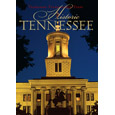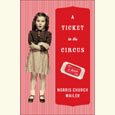Strength in Vulnerability
Poet, memoirist, and playwright Dan O’Brien discusses his three new books
This year marks the publication of three books by Dan O’Brien: Survivor’s Notebook, his fifth poetry collection; From Scarsdale, a memoir mining his childhood and its traumatic impressions; and True Story, a trilogy of documentary plays. The books, each distinctly different yet deeply personal, reckon with the truth that we are living and dying at the same time.
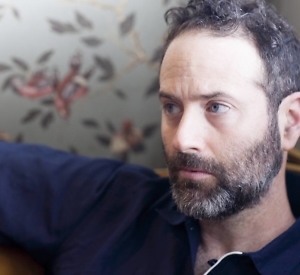 Survivor’s Notebook weaves prose poems and photography to reveal life in the aftermath of both O’Brien and his wife surviving cancer. Just over 100 pages and organized by season, the collection is intimate as well as kaleidoscopic, interspersing memories and insights with black-and-white images. Each poem is written in paragraph form, with and without punctuation, some as short as seven words while others cover two pages; some are metered and others aren’t; all are titled. Some of the material, namely grappling with his family of origin, overlaps with his childhood memoir, From Scarsdale.
Survivor’s Notebook weaves prose poems and photography to reveal life in the aftermath of both O’Brien and his wife surviving cancer. Just over 100 pages and organized by season, the collection is intimate as well as kaleidoscopic, interspersing memories and insights with black-and-white images. Each poem is written in paragraph form, with and without punctuation, some as short as seven words while others cover two pages; some are metered and others aren’t; all are titled. Some of the material, namely grappling with his family of origin, overlaps with his childhood memoir, From Scarsdale.
The experience of living with and surviving cancer colors all three of these books. In the introduction to True Story, the trilogy of plays, O’Brien writes, “I used to write fictionally. That had been the point. Storytelling was an egress from reality — or more accurately a strategy for telling the truth about myself and my family in a code that my family could not decipher. … But being disowned changed all that. I felt lost; I felt free. Fiction now seemed frivolous, evasive. I felt compelled to be honest with myself, and with my audience.”
O’Brien, who has a long association with the Sewanee Writers’ Conference, is originally from suburban New York and now lives in Los Angeles with his wife and daughter. He answered questions from Chapter 16 via email.
Chapter 16: This year marks the publication of three books by you — a poetry collection, a memoir, and a trilogy of plays. How did you decide to tell these stories in their respective forms?
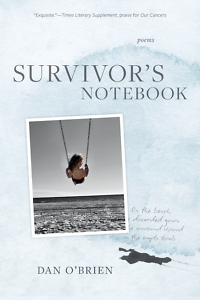 O’Brien: Poetry is my most intimate form. When I’m writing a poem, I feel like I’m praying or writing a love letter. But poetry can be — and this isn’t a bad thing — ambiguous, episodic, fragmented. While I was in treatment for cancer in 2016, I felt compelled to tell the story of my painful childhood, and I needed more narrative cohesion than poetry usually allows. My plays have a bit of both — intimacy and story, verse and drama — but a story on stage or screen needs to relentlessly hold an audience’s attention. So I think a lot about a play’s structure, how to keep an audience engaged moment-to-moment. The theatre is by its nature intensively collaborative, and I enjoy relinquishing control of my words to the interpretative art of actors, directors, designers. The theatre is also such a public artform, so my plays tend to be stories that have the potential to provoke an audience and generate debate after the curtain falls. All that said, I don’t really decide to tell my stories in these respective forms; the choice is intuitive, subconscious. The impulse and the subject seem to lead me in the right direction.
O’Brien: Poetry is my most intimate form. When I’m writing a poem, I feel like I’m praying or writing a love letter. But poetry can be — and this isn’t a bad thing — ambiguous, episodic, fragmented. While I was in treatment for cancer in 2016, I felt compelled to tell the story of my painful childhood, and I needed more narrative cohesion than poetry usually allows. My plays have a bit of both — intimacy and story, verse and drama — but a story on stage or screen needs to relentlessly hold an audience’s attention. So I think a lot about a play’s structure, how to keep an audience engaged moment-to-moment. The theatre is by its nature intensively collaborative, and I enjoy relinquishing control of my words to the interpretative art of actors, directors, designers. The theatre is also such a public artform, so my plays tend to be stories that have the potential to provoke an audience and generate debate after the curtain falls. All that said, I don’t really decide to tell my stories in these respective forms; the choice is intuitive, subconscious. The impulse and the subject seem to lead me in the right direction.
Chapter 16: Much of your recent poetry confronts and reckons with the dichotomy that we are living and dying at the same time and reminded me of Friedrich Hölderlin’s line “But where the danger is, also grows the saving power.” How does illuminating your experiences emancipate you? In what ways does remembering past trauma differ from the process of writing?
O’Brien: Writing about trauma, since I first started writing as an adolescent, has always saved me, in terms of my mental health, and yes, it’s given me a feeling of freedom — and connection — that I wouldn’t have found otherwise. Memories of trauma often arrive as intrusive thoughts, and writing about trauma allows two things to occur: The writer becomes desensitized through repeated exposure to the memories, and the writer gains a sense of control over the emotions elicited. Writing doesn’t cure trauma, but it helps a writer find meaning — a revised story of oneself going forward.
Chapter 16: I want to ask you specifically about your plays. How complete in your own mind is the conception of each narrative arc? Does the plot, or the theme, the ending, or a character change as you go along?
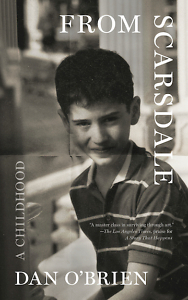 O’Brien: Change is everything. I don’t care about any specific narrative model; instead, I try to follow the progression of change in my characters and their circumstances. I write intuitively for many months before I consciously bring a critical or dramaturgical perspective into play. I may have a gut-level plan when I start writing concerning a character or story arc, but I’m expecting that the incremental, ongoing act of composition — and the private “rehearsal process” of some fairly obsessive revision — will allow me to make discoveries and deviate from any plans I might have had. If the playwright is surprised, delighted, disturbed, moved in the moment of creation, then the audience will feel something similar while watching these same moments unfold onstage.
O’Brien: Change is everything. I don’t care about any specific narrative model; instead, I try to follow the progression of change in my characters and their circumstances. I write intuitively for many months before I consciously bring a critical or dramaturgical perspective into play. I may have a gut-level plan when I start writing concerning a character or story arc, but I’m expecting that the incremental, ongoing act of composition — and the private “rehearsal process” of some fairly obsessive revision — will allow me to make discoveries and deviate from any plans I might have had. If the playwright is surprised, delighted, disturbed, moved in the moment of creation, then the audience will feel something similar while watching these same moments unfold onstage.
Chapter 16: Is it important to you that the characters and voices, including you and your voice, have a life independent of the story?
O’Brien: If you mean do I often write about living people, who of course have their lives outside of anything I might write about them, then the answer is yes. I am drawn to true stories, and have been for many years, though I started my writing career telling fictional stories, onstage and on the page. There was no grand plan at work; I simply responded to a trauma in my life — being disowned by my family without explanation in my early 30s — by writing about it. Trauma estranged me from myself and from my life, my past, present, and future; my very identity seemed foreign to me. So writing autobiographically was an urgent endeavor to reorient myself. I found that I was fascinated by reality, what had happened to me but also to other people, which led me to writing poetry and plays for a decade about a war reporter named Paul Watson, whose PTSD seemed, at times, like a funhouse mirror to my own. I have recently returned to writing fictionally again. But I remain fascinated by the uncanny beauty of reality, if only I can remain awake to it.
Chapter 16: What determines how broad or narrow the topic of each work is going to be? How do you winnow the scope and decide what to include and what to leave out?
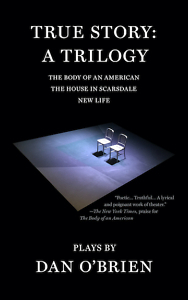 O’Brien: What I write reveals its scope to me as I write it. I always have an intuition, and sometimes a strong one, about what the overall approach to my subject will be. There’s a sense of the scope or breadth of the expression inside the initial impulse. But after that, mine is a process of trial and error, of surprise and disappointment and, hopefully, surprise again. As a poet and playwright, precision and economy of language and story are important to me. As I revise I try to be exacting in this regard. My training as a playwright is probably responsible for this; I want the audience and the reader to feel that they are racing in pursuit of the story, so I do my best not to repeat myself. I enjoy writing, but I enjoy deleting more.
O’Brien: What I write reveals its scope to me as I write it. I always have an intuition, and sometimes a strong one, about what the overall approach to my subject will be. There’s a sense of the scope or breadth of the expression inside the initial impulse. But after that, mine is a process of trial and error, of surprise and disappointment and, hopefully, surprise again. As a poet and playwright, precision and economy of language and story are important to me. As I revise I try to be exacting in this regard. My training as a playwright is probably responsible for this; I want the audience and the reader to feel that they are racing in pursuit of the story, so I do my best not to repeat myself. I enjoy writing, but I enjoy deleting more.
Chapter 16: In 2021 you said, “I was raised in a household where the truth was suppressed, and writing gave me hope, autonomy, freedom, and even love,” and the first line of your introduction to the new trilogy of your dramatic writing reads, “These plays tell the truth. Or they try to anyway.” How do you recognize and define what’s true?
O’Brien: There’s always going to be subjectivity involved with truth as opposed to facts. A sibling of mine, for example, would write a very different memoir about our shared upbringing, and both of our stories could be truthful. So I am trying to tell the truth about my subjective experience, as candidly as possible, and not simply for the sake of candidness — I’m not an exhibitionist — but for the sake of transgressing taboos. For many years this meant writing about the emotional and verbal abuse in my childhood and the varieties of mental illness that afflicted my parents and siblings. While working with Paul Watson I hoped to break the taboo of writing honestly about war. And in more recent years I am trying to write honestly — in my poetry and my essays especially — about cancer and survivorship.
Chapter 16: What are the risks and rewards of answering what you’ve described as “a spiritual responsibility” to write about subjects that others, primarily your family of origin, wanted suppressed at all costs?
O’Brien: The rewards of writing about a suppressed truth far outweigh the risks. The risks are that you may upset people who would like to keep truth or facts or reality suppressed, but those people usually deserve their upset. Another risk is that you could feel exposed and vulnerable, and your words might be misunderstood or misconstrued. But I have always believed that vulnerability is a covert strength. This belief came from reading the so-called confessional poets as a teenager, and feeling that suddenly I knew the power and purpose of writing. Poets like Sexton, Plath, Lowell, and many more — these writers lent me their strength because they made themselves vulnerable as they made their struggles artful — that is, meaningful. Which leads me to the reward of writing this way: I can feel useful, helpful, hopeful that those who read my books or see my plays might feel some recognition, solidarity, and some small measure of comfort, perhaps.
Chapter 16: Given the vast volume of work you’ve produced, what continues to surprise and inspire? When do you feel complete?
O’Brien: There’s no end to the people and experiences that surprise and inspire me. There are so many stories I want to tell, in many different forms. I never feel complete as a writer, and for that I am grateful.
Survivor’s Notebook: Poems
By Dan O’Brien
Acre Books
116 pages
$17From Scarsdale: A Childhood
By Dan O’Brien
Dalkey Archive Press
216 pages
$16.95True Story: A Trilogy
By Dan O’Brien
Dalkey Archive Press
220 pages
$15.95

Sarah Norris has written about books and culture for The New Yorker, San Francisco Chronicle, The Village Voice, and others. After many years away, she’s back in her hometown of Nashville.



